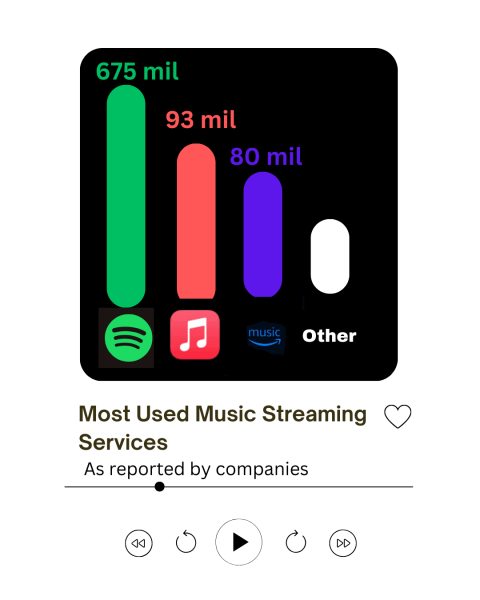It doesn’t matter where you go to college
It is a well-known fact that the college admissions process is one full of stress and anxiety for seniors. But should it be?
Since even before middle school, students have had the notion ingrained in our heads that the college we choose to attend at the end of our senior year will influence the rest of our lives, and that it is one of the biggest decisions we will ever make. But in all honesty, it really isn’t.
The LHS community, and American society as a whole, has turned attending college into something more than it is. You can be successful whether you go to college or not, and the college you choose to go to does not determine the eventual success you will have in life.
And what is it with Ivy League colleges? People who get into Ivy League schools have impressive scores and grades, but this can unintentionally create an unrealistic and unattainable standard for everyone else. Attending any college is an amazing accomplishment and is something to be proud of. Someone who attends an Ivy League school is not inherently “better” than someone who attends a state school, and we need to stop making students think that they are.
Students should not sacrifice things that they want out of a college experience just to attend a school with a good reputation. The narrative of committing to a school with the best reputation is one that is damaging and overemphasized to students as they make the journey from high school to college.
Furthermore, the perceived shame of attending a community college in the LHS community specifically is unacceptable, to say the least. Attending a four-year college that is hundreds of miles from home isn’t the best fit for all 18-year-olds, especially considering the various costs that go into that move. And that is OK! Community college is a great option, and there should be no shame at all in attending the College of Lake County or other small, local colleges.
We put too much value on the grades and scores of someone’s education, and not the quality of education someone is receiving. Some students would do significantly better at a school with a smaller student-to-faculty ratio than in a lecture hall of 400 students. Yet there remains a common conception that schools with smaller student-to-faculty ratios are not as prestigious or desirable compared to a Big 10 school. But why would a school with large lecture halls ever be a good school for someone who learns better in a smaller, more personal environment?
Conversely, some students might do very well in the large lecture hall classroom that Big 10 schools offer, and going to a school like that would be the best choice for them to get a successful college experience.
Your college experience is what you make of it. No school, regardless of how highly it is ranked, can teach you the work ethic you need to be successful in the workforce once you finish college. Although higher-ranked schools may offer more connections to possible jobs after graduation, the success in your career is largely dependent on how hard you want to work for it.
Pressure from peers, parents, siblings and friends also influences a student’s decision on where they attend college. Additional pressure is internal — stress students put on themselves — and some seniors have found some ways to minimize the stress that comes with the college process.
Setting boundaries with those involved in the college process (parents and guardians, siblings and friends) can prove very useful. Scheduling specific times to discuss college visits, standardized testing and other college conversations helps alleviate stressful and impromptu conversations.
College is an opportunity for students to grow, but it doesn’t solely determine the trajectory of the rest of our lives, and it shouldn’t be treated as such. We are beyond lucky to live in a community where the surrounding adults support us throughout the college process. And wherever we may end up, our happiness should always be our priority as well as yours, not the ranking of a school or its reputation.











